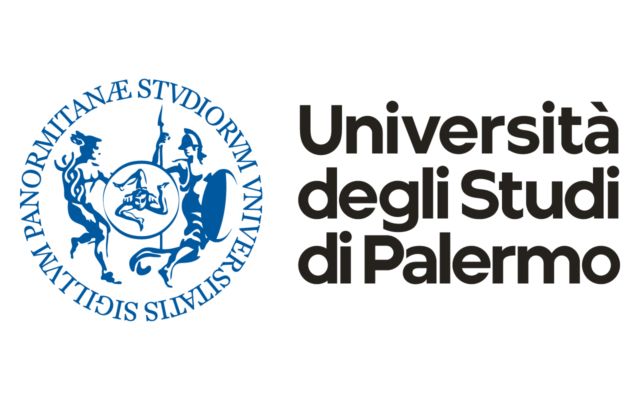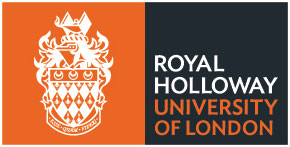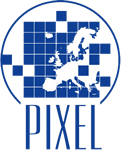Disclaimer: This Project funded by the European Union. Views and opinions expressed are however those of the author(s) only and do not necessarily reflect those of the European Union or the European Education and Culture Executive Agency (EACEA). Neither the European Union nor EACEA can be held responsible for them. ![]()
Resources for Training of Trainers Course
University of Palermo, Italy
Overview
This course aims to think of supervision as an instrument of training, innovation, and the reconstruction of practices. It is supported by supervisors through the analysis of supervisory models, processes, and competencies, exploring concepts, practices, and their relationship with specific didactics. It, therefore, stresses the link between training, intervention, and supervision, designing the latter as a horizontal process with reflexive instance and as research for action. This framework emphasizes the necessary creation of extended learning communities and the processes of reconstruction of knowledge throughout life.
(What the trainee is expected to know & do (Knowledge, Skills and competencies), (After finishing the training Course)
- Analyze supervisory models determining their conceptual fundamentals;
- Compare the principles inherent to the various supervisory models with the pedagogical approaches that are assumed in the contexts;
- Contextualize supervision within the framework of a collaborative process that favors the support and stimulation of trainees;
- Analyze training experiences that promote reflective and quality work environments;
- Consider the role of supervision in promoting an investigative attitude toward professional practice;
- Establish pedagogical connections between specific didactics and supervisory models.
Who is the training course for?
18 Academic Staff (Same members for each training)
- Al-Quds Open University
- Al-Aqsa University
- Al-Rawda University College
- Al-Ummah University College
12 Members from 2 ministries
- 6 Ministry of Education
- 6 Ministry of Social Development
TRAINING COURSE PATH
- The supervisory cycle: planning, action, reflection The substantivity of pedagogical knowledge
View The Presentation - Other Training materials
View The materials
Presenter:
Assistant Professor, Luis Castanheira
The Digital Competence Framework for Citizens (DigComp) provides a common understanding of what digital competence is.
Supported Materials :
WHY TO USE SOVASI?
Presenter:
Dr. Elif Gulbay
- Emphasis on the importance of Computational Thinking (CT) in the 21st century.
- CT as essential for success in a digital era.
- Need for early education in CT to bridge knowledge gaps and foster interdisciplinary
dialogue.- Objective: Equip teachers to introduce CT and coding using developmentally
appropriate environments.
- Objective: Equip teachers to introduce CT and coding using developmentally
Presenter:
Dr. Papadakis Stamatios
Department of Preschool Education
University of Crete, Greece
Nursery and Kindergarten Standards in Palestine
Presenter:
Dr. Imelda Graham
- What constitutes the child’s social environment
- Bronfenbrenner’s Ecological Systems Model: Macro, Meso and Micro
- Children’s Learning: • Albert Bandura Social Learning/Cognitive Theory
- John Bowlby Attachment Theory,
- Alison Gopnik and Casual Learning
- How do these models impact on the Child/Adult relationship and the work of the educator?
- Dr. Imelda Graham, ULS
- Dr. Ravinder Barn, Royal Holloway University of London
Supporting Resources
The pedagogical perspective of child Association
Presenter:
Dr. Luís Castanheira
Bragança-Portugal
The supervisory cycle: planning, action, reflection The substantivity of pedagogical knowledge.
Planning in preschool context
Persenter:
- Luís Castanheira
The environment plays a key role in supporting and extending children’s development and learning. Enabling environments encourage children to play because they feel relaxed, comfortable and ‘at home’ in them.
Pre-school education is the first stage of basic education in the process of lifelong learning, being complementary to the educational activity of the family, which must establish close cooperation, encouraging the formation and the balanced development of the child, with a view to their full integration into society as being autonomous
The scientific monograph titled Answers and Innovations in Pre-School Education in Portugal and Slovenia comprises theoretical and empirical papers, which provide the formal basis of the pre-school education in Portugal and Slovenia, and various innovations that improve the quality of pre-school education.
Authors:
- Luís Castanheira
- Tatjana Devjak
The supervisory cycle: planning, action, reflection The substantivity of pedagogical knowledge
Key Strategies in Early Childhood Care and Education: A Comparative Review Based on European Standards.
Supervisor Development Strategy: Technical and Personal characteristics. Supervisor’s multifaceted role in observation, coaching, and mentorship. Paradigms and models of pedagogical supervision. Develop a comprehensive and effective supervision grid to assess the pedagogical practice
Presenters:
- Cristina Mesquita
- Luís Castanheira
- Stamatios Papadakis
Organisation of working time/daily routine in Preschool education
For instructors teaching with:
Teaching Young Children: An Introduction
How did the High Scoope model?
- 1962 – David Weikart
- Was created to serve children at risk of poor neighborhoods of Ypsilant AMERICA and with School income.
Training Courses
You might also be interested in these Training courses

Polytechnic Institute of Bragança Portugal
Polytechnic Institute Of Bragança - Portugal
View training Course

Al-Quds Open University, Ramallah, Palestine
Al-Quds Open University, Ramallah, Palestine
View Traning Course

University Of Palermo, Italy
University Of Palermo, Italy
View Traning Course

University of Crete, Greece
University of Crete, Greece
View Traning Course

Royal Holloway University of London (RHUL)
Royal Holloway University Of London (RHUL)
View Traning Course
PIXEL, ITALY
PIXEL, ITALY
View Traning Course

University Of Palermo, Italy
University Of Palermo, Italy
View Traning Course
